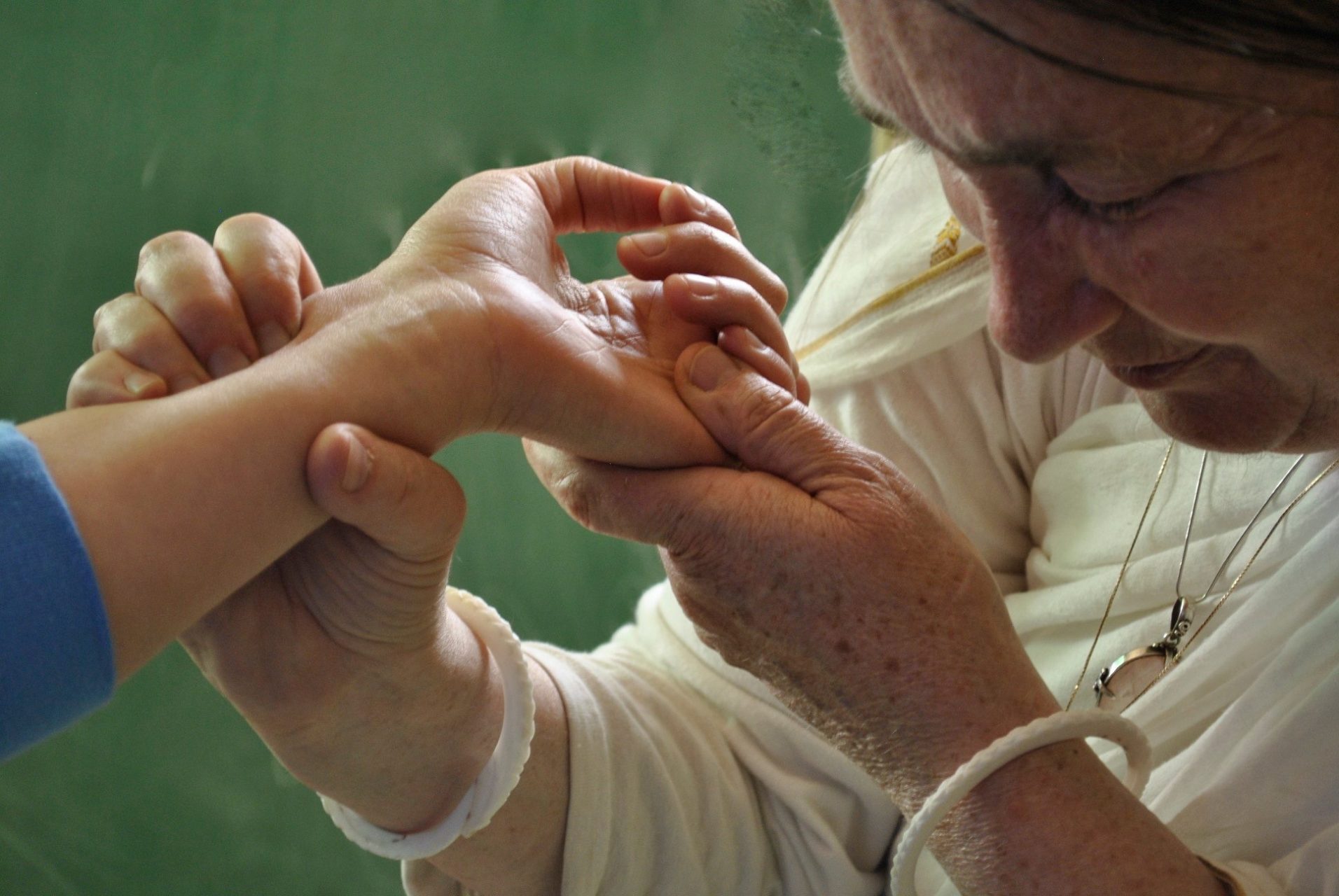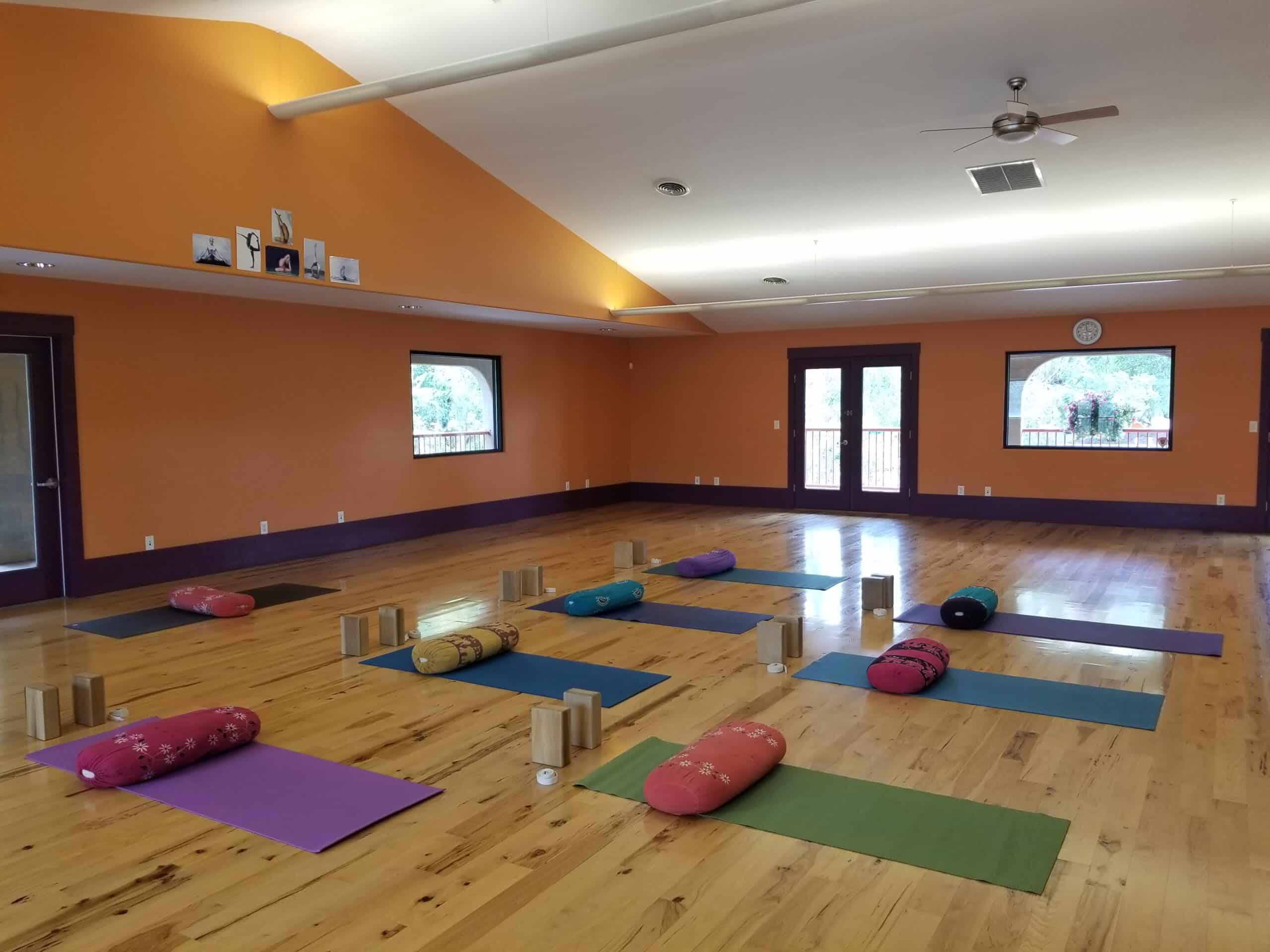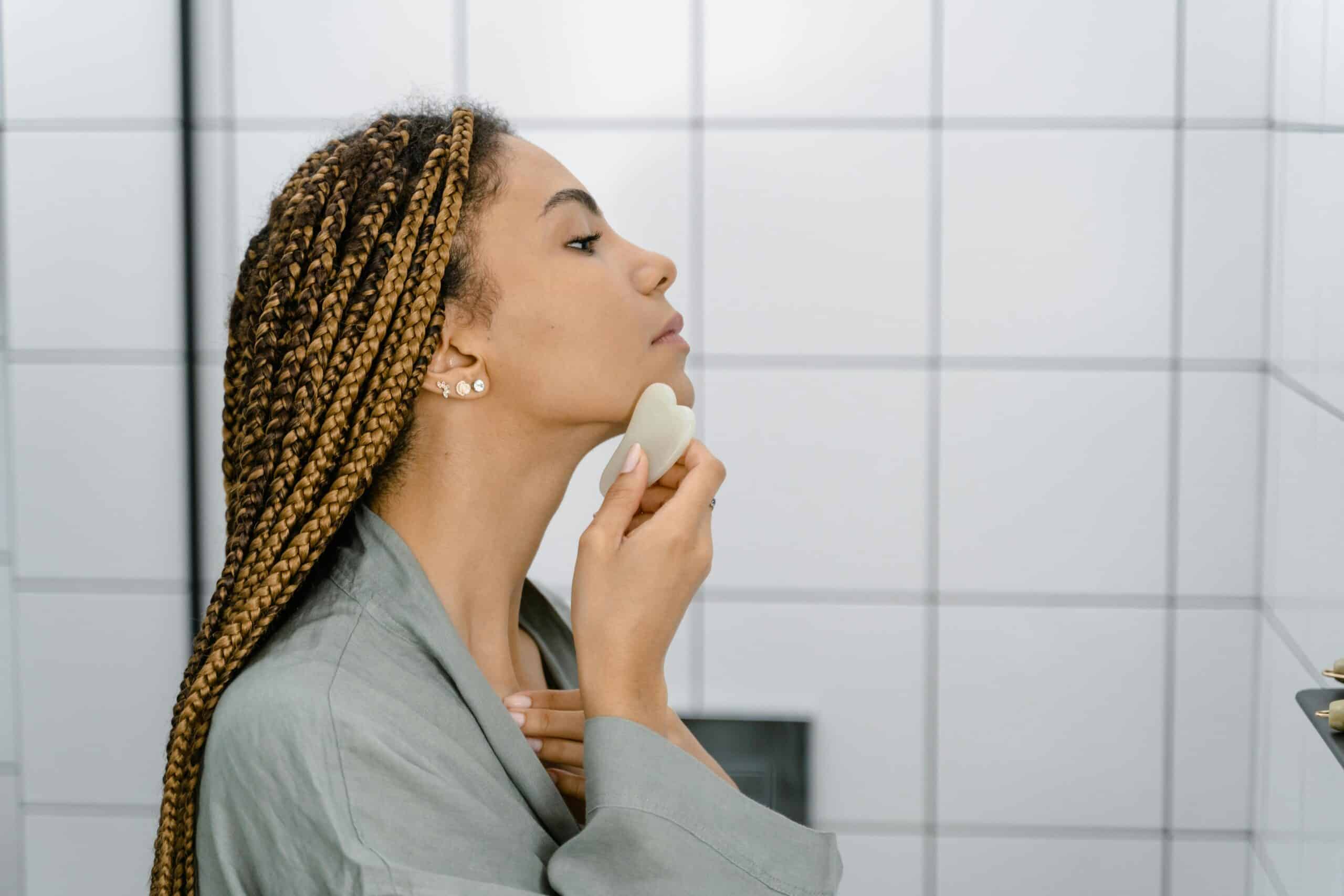Evolving Healthcare with Ayurveda | By Julia Clarke
Joyful. Clear. Inspired. Free. Ayurveda
Four words emerge effortlessly from deep in my consciousness and rise to the surface of my mind. I’m sitting cross-legged in a treatment room at Alandi Ashram, Ayurveda Clinic and School, a center for healing in Boulder for 28 years. At the behest of my guide Sierra Brashear, a second year student practitioner, I’m visualizing my desired state of wellbeing, words that will form the foundation for my journey to self-care.
Ayurveda and I have had a long love affair. Meaning “science of life,” it is one of the world’s most ancient traditions of holistic medicine, sometimes called the father of Chinese Medicine. I discovered it in childhood and became a practitioner in my late twenties, pouring myself into the infinite wisdom contained within its tomes. I followed it to its birthplace in India, where I experienced the weird and wonderful world of Ayurvedic massages, steam therapy and enemas, before turning my studentship into a master’s degree.
For two hours we pour over my health. Brashear takes my pulse conscientiously, seeking signals of imbalance. We discuss everything that could be influencing my health: family history, diet, relationships and even bathroom habits.
“My motivation in life is to leave the world a better place,” explains Brashear. “My undergraduate and master’s degrees are both in international environment and development, but after having completed these degrees, I felt disheartened because the ways that I saw to make a difference in the world were very macrocosm, which didn’t resonate with me. Something in me realized that if we want to heal our planet, we must start with healing ourselves and each other.”
Something in me realized that if we want to heal our planet, we must start with healing ourselves and each other.
Like most, my chief complaint is stress, much of which stems from a knee surgery last year. An unfortunate spill on the slopes introduced me to the stark failure of American society: the healthcare system. The ensuing months bore thousands of miles driven for treatment, hurried consultations where my concerns were neither asked about nor dealt with, mounting bills and growing anxiety.
According to Brashear, people who’ve been chewed up and spit out by the healthcare system are often the ones who eventually stumble through the doors of Alandi, depleted and desperate, where instead of a brusque appointment with an overworked provider they find someone compassionate and skilled who will listen, observe, and co-create a workable plan for health. ayurveda
“The Western medical system deals largely with treatment of symptoms, rather than root cause. Yet many people are experiencing symptoms that Western medicine hasn’t figured out how to mask, while others are disinterested in the side effects caused by prescription medications. In neither case is the whole body system considered, leaving quite a lot of people suffering with their symptoms with no guidance for healing.”

These people, who she says come seeking relief from everything from chronic pain and anxiety to fertility and digestion issues, often find both relief from their symptoms and spiritual guidance and connection.
“Alandi Ayurveda’s role is to provide guidance for healing that focuses on the whole person, starting with discovering the individual’s unique constitution, and then rebalancing the elements within the body and mind through nutrition, lifestyle and gentle herbal treatments.”
Ayurveda sees the human physiology as being composed of the five elements, and any disorder as dissonance at this quantum level. Treatment favors diet, herbs, routine, and consciousness-based practices like yoga and meditation to re-harmonize the subtle physiology. The heat of inflammation is described as excess fire, and treated with cooling foods and behaviors, while the heaviness of depression is perceived as excess earth and balanced with light and stimulating measures. It is as simple as it is effective and this is what I love about it.
Alandi was founded in 1990 by Alakananda Devi, one of the first Western physicians to teach Ayurveda under the tutelage of the esteemed Dr. Vasant Lad, and her partner Sadananda. A small, unassuming house on a quiet residential street efficiently houses residents, treatment rooms, an apothecary, and the school where a small close-knit group study to become practitioners or doctors.
The depth of wisdom here is impressive and the comprehensiveness of our consultation foreshadows their entire approach. Two weeks later I receive my treatment plan: 19 pages detailing my health, changes to make to my diet, a protocol of herbs to take, oils to use, mantras to listen to, aromas to inhale and more. Armed with a personalized manual aiming me towards my desired state of wellbeing, I feel supported for the long road ahead. This is not a quick fix solution, as Brashear points out, but an interactive and rewarding journey of participation and progress: “The people who come to us have to be able to put in the work to heal themselves, but ultimately, it’s very worth it.”
4 Ayurvedic Tips for Self-Care from Alandi Ayurveda student practitioner Sierra Brashear
-
Eat and drink only warm items.
In Ayurveda, healthy digestion is the foundation of deep wellness. Your agni, or metabolic fire, is responsible for transforming what you take in to your body into the wellness that supports thriving existence. It is essentially the energy of transformation, and keeping it healthy helps ensure that your doshas (combination of elements) return to balance and remain there. When agni is healthy and the doshas are balanced, disease can not manifest. One very important way to care for agni is to intake only cooked food and warm beverages – this means no ice water! Warm beverages (such as warm lemon and honey water) help kindle the digestive fire, while cold ones dampen it.
-
Sleep and eat at regular times.
Another very important part of healing with Ayurveda is aligning your routines with the rhythms of nature, including the daily cycle of the sun. You might be surprised by how much can shift simply by leveraging the energies available at different times of day, as well as by creating consistency across your days. Waking up before 6 am synchronizes your body to the rhythm of the sun, and is the ideal time to eliminate both physical and mental wastes. Between 10 am and 2 pm is when your digestive fire is the strongest, so it is the ideal time to eat your main meal, and is also the best time to do your most strenuous mental activities. Eat a small meal by 6 pm, and go to sleep before 10 pm to ensure a good night’s sleep and healthy agni the next day.
-
Take a walk after each meal. ayurveda
Our bodies are designed to move after intake of food, to support digestion and avoid lethargy. After eating, take a 10-15 minute stroll outside. As you stroll, take a deep breath in to take in the prana (life force) of the natural environment.
-
Scrape your tongue.
One of the goals of Ayurveda is to clear toxins from the body. During each night, your body is pulling toxins from the deep channels toward the external channels. In the morning, many of these toxins have collected on the tongue, and using a tongue scraper removes them so you don’t swallow them. Tongue scrapers are available on Amazon, at Whole Foods and Alandi.
Originally published in the Summer + Fall 2018 issue.
Boasting a blend of wool and tencel shearling lining, this durable shoe will comfort you from the [...]

Subscribe to Our Tribe
Stay up to date with Y+L News, Events and special announcements.










